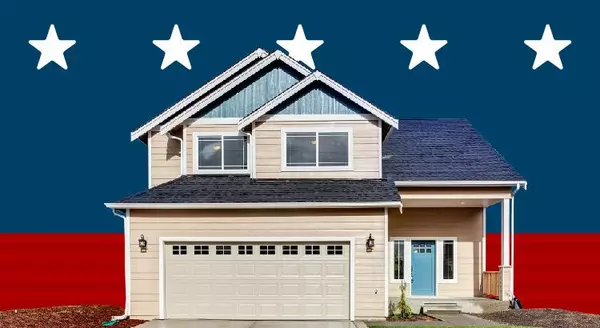![Equity Can Make Your Move Possible When Affordability Is Tight [INFOGRAPHIC],KCM Crew](https://img.chime.me/image/fs/chimeblog/20240427/16/w600_original_60aa496c-fbd5-49c4-b313-4969cbc6fabe-png.webp)
Equity Can Make Your Move Possible When Affordability Is Tight [INFOGRAPHIC]
Some HighlightsDid you know the equity you have in your current house can help make your move possible?Once you sell, you can use it for a larger down payment on your next home, so you’re borrowing less. Or, you may even have enough to be an all-cash buyer. The typical homeowner has $298,000 in equity. If you want to find out how much you have, connect with a local real estate agent for a Professional Equity Assessment Report.

Is a Multi-Generational Home Right for You?
Ever thought about living in the same house with your grandparents, parents, or other loved ones? You're not alone. A lot of people are choosing to buy multi-generational homes where everyone can live together. Let's check out why they think it’s a good idea to see if it might be a good fit for you, too.Why People Are Choosing Multi-Generational LivingAccording to the National Association of Realtors (NAR), here are just a few key reasons buyers opted for multi-generational homes over the past year (see graph below): Two of the top reasons had to do with aging parents. 27% of buyers chose multi-generational homes so they could take care of their parents more easily. And 19% did it to spend more time with them. A lot of older adults want to age in place, and living in a home with loved ones can help them do just that. If your parents are hoping to do the same, but need a bit of help, a multi-generational home may be worth considering.But buying a multi-generational home isn’t just about being close or taking care of the people you love—it can save you money, too. 22% of buyers say they picked a multi-generational home to cut down on costs, and 11% needed a bigger house multiple incomes could afford together.Sharing costs like the mortgage and utilities can make owning a home more affordable. This is especially helpful for first-time homebuyers who might find it challenging to buy a place on their own in today's market.As Axios explains:“Financial concerns and caregiving needs are two of the major reasons people live with their parents (and parents’ parents).”How an Agent Is Key in Finding the Right Home for YouLooking for the perfect multi-generational home is a bit trickier than finding a regular house. You've got more people, which means more opinions and needs to think about. It's kind of like putting together a puzzle where all the pieces need to fit perfectly.If you're into the idea of living with loved ones and want all the benefits that come with it, team up with a local real estate agent who can help you out.Bottom LineWhether you're looking to save money or want to take care of your loved ones, buying a multi-generational home might be a good idea for you. If you want to find out more, talk to a local real estate agent.

Foreclosure Numbers Are Nothing Like the 2008 Crash
If you’ve been keeping up with the news lately, you’ve probably come across some articles saying the number of foreclosures in today’s housing market is going up. And that may leave you feeling a bit worried about what’s ahead, especially if you owned a home during the housing crash in 2008.The reality is, while increasing, the data shows a foreclosure crisis is not where the market is headed.Here’s the latest information stacked against the historical data to put your mind at ease.The Headlines Make the Increase Sound Dramatic – But It’s NotThe increase the media is calling attention to is a little bit misleading. That’s because it’s comparing the most recent numbers to a time when foreclosures were at historic lows. And that lopsided comparison is making it sound like a much bigger deal than it actually is.Back in 2020 and 2021, there was a moratorium and forbearance program that helped millions of homeowners avoid foreclosure during challenging times. That’s why numbers for just a few years ago were so low.Now that the moratorium has come to an end, foreclosures are resuming and that means numbers are rising. But it’s an expected increase, not a surprise, and not a cause for alarm. Just because foreclosure filings are up doesn’t mean the housing market is in trouble.To prove that to you, let’s expand the comparison out a bit more. Specifically, we’ll go all the way back to the housing crash in 2008 – since that’s what people worry may happen again.The graph below uses research from ATTOM, a property data provider, to show foreclosure activity has been consistently lower since the crash in 2008: What the data shows is that things now aren’t anything like they were surrounding the housing crash. The bars in red are when there were over 1 million foreclosure filings a year. In 2023, there were roughly 357,000. That’s a big difference.A recent article from Bankrate explains one of the reasons things aren’t like they were back then:“In the years after the housing crash, millions of foreclosures flooded the housing market, depressing prices. That’s not the case now. Most homeowners have a comfortable equity cushion in their homes.” Basically, foreclosure activity is nothing like it was during the crash. That’s because most homeowners today have enough equity to keep them from going into foreclosure. And that’s a really good thing for homeowners and for the market.The reality is, the data shows a foreclosure crisis is not where the market is today, or where it’s headed.Bottom LineRight now, putting the data into context is more important than ever. While the housing market is experiencing an expected rise in foreclosures, it’s nowhere near the crisis levels seen when the housing bubble burst, and that won’t lead to a crash in home prices.
Categories
Recent Posts











